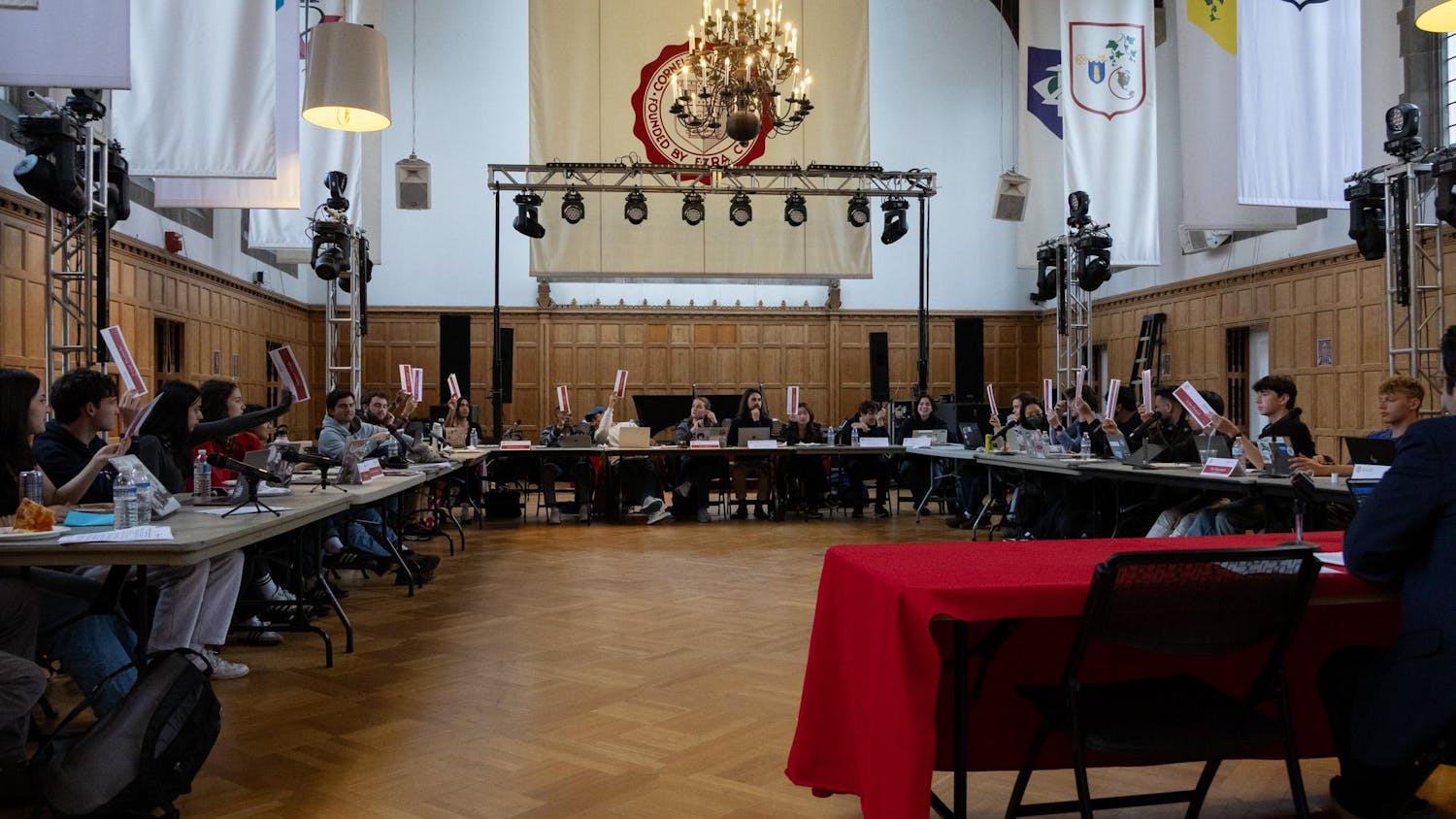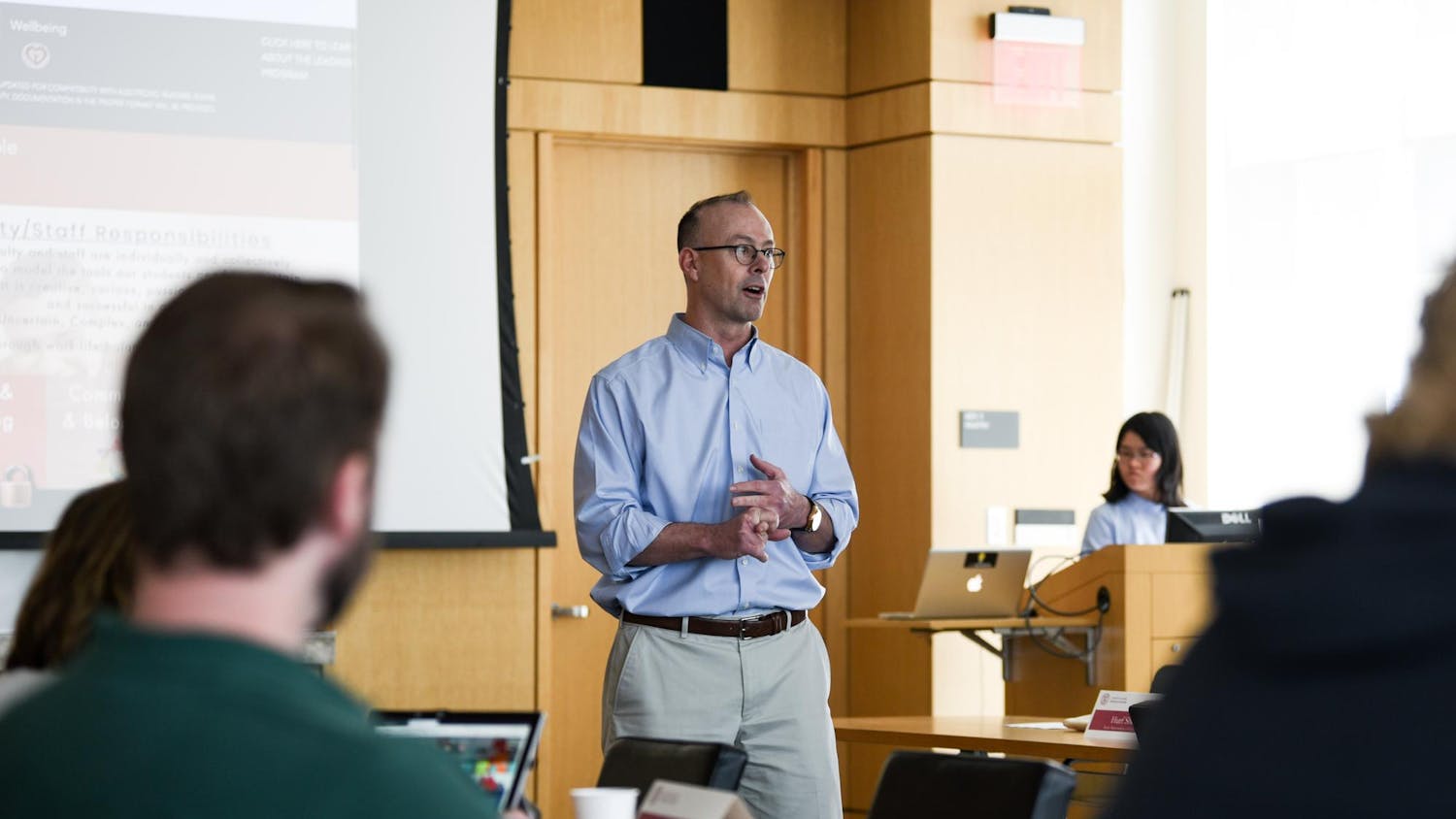Ph.D. candidate Russell Burgett filed a federal charge with the National Labor Relations Board, claiming that the Cornell Graduate Student Union and its affiliated labor union, the United Electrical, Radio and Machine Workers of America, is unlawfully operating under a contract that violates his rights to abstain from financially supporting or joining the union.
The NLRB is a federal agency that enforces private sector labor law under the National Labor Relations Act. Burgett, who is being represented by the National Right to Work Legal Defense Foundation, submitted the complaint on July 8.
The filing is based on the collective bargaining agreement ratified by CGSU-UE and Cornell in March.
Burgett’s charge argues that graduate students are not “employees” under Section 8 of the NLRA, which prohibits both employers and unions from engaging in unfair labor practices and therefore cannot be lawfully forced to unionize or fund the union.
The complaint also alleges that the collective bargaining agreement forces Cornell to cease business with any graduate students who do not join or financially support the union, which the filings refer to as the “Membership Agreement.”
Burgett, a Ph.D. candidate in chemical physics, is not a member of the CGSU–UE and opposes the unions. According to the filing, he sent the unions “letters and emails stating that he did not want to fund or support the political and ideological activities of the unions and their affiliates.”
Burgett further alleged that, around June, the unions “threatened” him to financially support the unions under the Membership Agreement and filed a “contractual grievance” with Cornell to compel the University to enforce the Membership Agreement.
If Burgett’s charge is approved, the NLRB could eventually overturn the Obama-era 2016 Columbia University decision, which recognized private university graduate students as employees with collective bargaining rights. This would not only invalidate Cornell’s CGSU-UE contract, but also limit union power over graduate students at other private universities nationwide.
“At America’s elite universities, union bosses empowered by the Obama and Biden NLRBs are coercing dissenting students into funding their political radicalism and constant agitation,” said NRTW President Mark Mix in a public statement. “Forcing students to choose between completing their graduate degrees or affiliating with an ideological group they find unconscionable is antithetical to principles of academic freedom.”
Burgett’s filing follows other union-related controversies at Cornell. In June, two other graduate students filed religious discrimination charges with the Equal Employment Opportunity Commission, alleging that CGSU–UE subjected them to intrusive questioning after they sought to opt out of union dues on faith-based grounds. This case remains pending.
In an emailed statement to The Sun, a University spokesperson wrote, “We are aware of the charges against the union, as well as the University, and intend to defend ourselves before the National Labor Relations Board.”
CGSU-UE, in an emailed statement to The Sun, called the lawsuit “harmful” and “dangerous,” and said they don't “anticipate that Cornell will side with the far right’s attack on higher education, but if [Cornell does], [CGSU-UE is] ready to meet them with union power.”
The NLRB has not yet announced whether it will issue a complaint based on Burgett’s charge.
UE officials did not reply to a request for comment.
Correction, July 26, 12:57 p.m.: A previous version of this article incorrectly explained that CGSU-UE officials did not reply to a request for comment.
Update, July 27, 1:01 p.m.: This article was updated to include a statement from CGSU-UE











